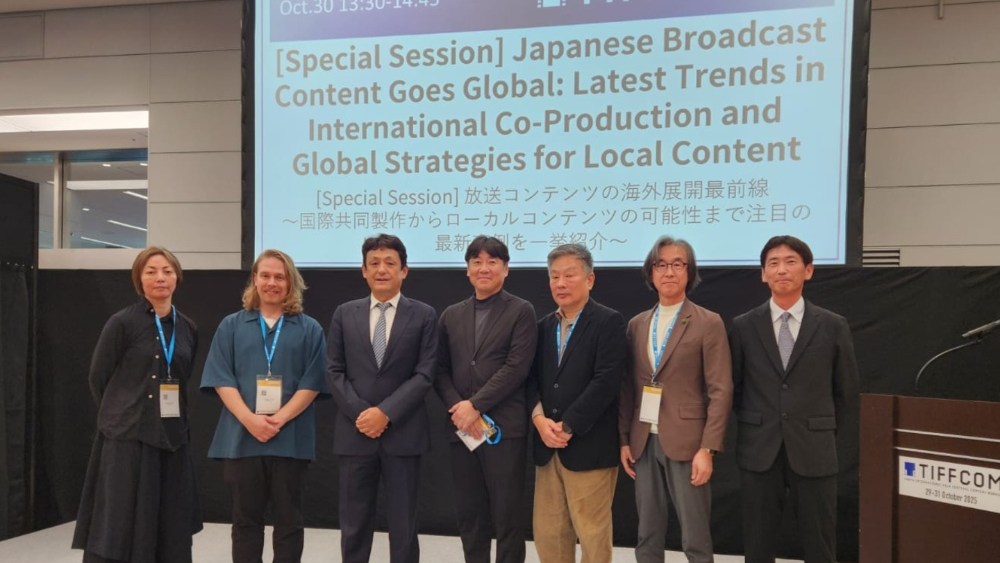Additional time due to script delays, different holiday mindsets, and additional staff costs. Producers of the upcoming eight-episode crime series “Blood & Sweat,” produced by Japan’s AX-ON and Finland’s ICS Nordic, spoke candidly about the real-world challenges facing international co-productions at a TIFFCOM seminar.
TIFFCOM is the market division of the Tokyo International Film Festival.
Starring Ann Watanabe (Cube, Stay Mom) and Jasper Peakkonen (BlacKkKlansman, Vikings), the series follows two detectives from opposing cultures working together to investigate a series of murders.
The nine-month script development process required intensive interaction between the screenwriters and producers. According to AX-ON producer Daniel Toivonen, the script for the episode was first written in English, translated into Japanese, and then had to undergo further review to ensure the dialogue was culturally specific and appropriate.
“Initially, the script was written in English, and I had it translated, but I translated it word for word, then had the actors speak the lines to make sure they didn’t feel strange, and then I rewrote from there. It took a while,” Toivonen said.
Different working cultures and styles also caused problems during filming. Toivonen said Finnish staff operates under strict union rules that prioritize work-life balance, in contrast to Japanese filming practices. Labor costs in Finland are also higher than in Japan.
“We were very strict about time management. In Japan it’s okay to go a few minutes over, but in Finland the cameras shut down on time. They’re sharp,” Toivonen said.
Finnish law limited filming schedules to a maximum of four 12-hour days per week. In practice, this meant filming Monday through Thursday, followed by a prep day on Friday.
“Four days a week doesn’t work in Japan, so you’ll probably work six days a week or even longer days,” Toivonen explained. “We also had a Finnish crew and a Finnish director (shot in Japan), so we needed more English-speaking staff, which increased our budget.”
Creative decision-making is also more advanced in Finland’s production culture than in Japan. According to Toivonen, compared to Japanese directors, Finnish directors tend to delegate major decision-making to department heads. For example, when asked about costume ideas, the Finnish director of the series said, “This is a wardrobe project, so I want to respect her ideas.”
Separately, the seminar also introduced the Local Content Bank (LCB), an initiative to centralize and streamline Japanese content for the global market.
The online platform, led by local broadcaster Miyazaki Television Broadcasting, allows Japan’s many small and regional TV stations to upload extensive programming libraries that are then segmented and recategorized (via AI) into individual content.
Other users of the platform can reformat and aggregate this content to create new shows and long-form playlists.

